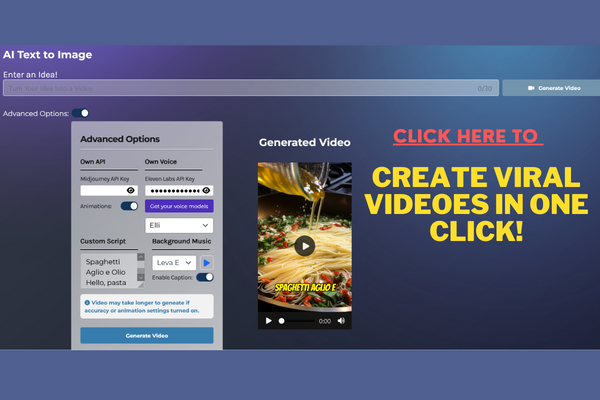
In the realm of online marketing and search engine optimization, the influence of big brands has always been significant. Their established reputation, extensive resources, and recognizable names gave them a distinct advantage over smaller competitors. However, a recent shift in the digital landscape suggests that Google may have finally leveled the playing field. With its ever-evolving algorithms and a greater emphasis on user experience, Google’s search engine results pages (SERPs) are transforming, potentially diminishing the once towering advantages of big brands. In this blog post, we will delve into the question: Has Google finally eliminated big brand advantages? Let’s explore the changes and implications that could potentially reshape the online marketing landscape as we know it.
Introduction
In recent years, Google’s algorithms and search engine rankings have been a topic of great interest and controversy among marketers and SEO experts. Many have long suspected that big brands enjoy unfair advantages when it comes to ranking highly on Google. However, a recent video created by Authority Hacker suggests that Google may have finally eliminated these advantages. In this review, we will explore the insights provided by Cyrus Shepard, a talented SEO expert who has become a Google Quality Rater. We will delve into the importance of EEAT for Google and quality raters, discuss whether Google gives unfair advantage to larger sites, and examine the recent updates to the Quality Rater Guidelines.
Heading 1: Cyrus Shepard, a Talented SEO, Becomes a Google Quality Rater
Cyrus Shepard, a renowned figure in the world of SEO, has recently joined Google as a Quality Rater. This move has raised eyebrows and sparked interest among SEO professionals. As a Google Quality Rater, Cyrus is tasked with evaluating websites based on specific guidelines provided by Google. His insights are invaluable in understanding how Google evaluates and ranks websites.
Heading 2: Importance of EEAT for Google and Quality Raters
EEAT, which stands for Expertise, Authoritativeness, and Trustworthiness, has become a crucial factor for Google and its Quality Raters. According to Cyrus Shepard, these three elements are significant indicators of a website’s quality and relevance. He emphasizes that Google places a high value on expert content, trustworthy sources, and authoritative figures.
Heading 3: Does Google Give Unfair Advantage to Larger Sites?
One of the long-standing suspicions in the SEO community is that Google provides preferential treatment to larger sites, giving them an unfair advantage in search rankings. However, according to Cyrus Shepard, recent changes in the Quality Rater Guidelines aim to level the playing field. These guidelines have been updated to ensure that big brands no longer enjoy automatic advantages over smaller, less established websites.
Heading 4: Recent Updates to the Quality Rater Guidelines
The Quality Rater Guidelines have recently undergone significant updates to address concerns regarding big brand advantages. One noteworthy change is that Quality Raters are now instructed to rate big brands highly despite any flaws in their web pages. This shift acknowledges that big brands may have inherent advantages but aims to prioritize relevance and quality in search rankings.
Heading 5: What’s Coming Next from Google?
During the podcast episode 329, Cyrus Shepard hints towards future updates and improvements to the Quality Rater Guidelines. While he does not provide specific details, he mentions that Google is actively working on refining the guidelines and addressing potential biases and inconsistencies. This indicates that Google is committed to continually improving its search algorithm and providing fair rankings for all websites.
Conclusion
In conclusion, the video created by Authority Hacker and the insights provided by Cyrus Shepard shed light on the topic of big brand advantages on Google’s search rankings. While it has long been suspected that larger sites enjoy unfair benefits, recent updates to the Quality Rater Guidelines suggest that Google is actively working to eliminate these advantages. By prioritizing expert content, trustworthiness, and relevance, Google aims to provide a fair and balanced ranking system. As SEO professionals and marketers, it is essential to stay updated on these developments and adapt our strategies accordingly.
FAQs (Frequently Asked Questions)
-
Q: What is EEAT, and why is it important for Google and Quality Raters?
A: EEAT stands for Expertise, Authoritativeness, and Trustworthiness. It is crucial for Google and Quality Raters as it helps evaluate the quality and relevance of websites. -
Q: Do big brands receive preferential treatment from Google?
A: According to recent updates in the Quality Rater Guidelines, Google aims to erase advantages of big brands and provide fair rankings based on relevance and quality. -
Q: How do Quality Raters rate big brands despite flaws in their web pages?
A: Quality Raters are now instructed to rate big brands highly, even if there are flaws in their web pages. This change acknowledges the inherent advantages of big brands but prioritizes relevance and quality. -
Q: Are there upcoming updates to the Quality Rater Guidelines?
A: Cyrus Shepard hints at future updates and improvements to the Quality Rater Guidelines, suggesting that Google is actively working on refining the guidelines to address biases and inconsistencies. -
Q: How can SEO professionals adapt to these changes?
A: SEO professionals should stay updated on the latest developments in the Quality Rater Guidelines and focus on creating expert content, establishing trustworthiness, and prioritizing relevance in their strategies.

